- Expand the Canon
- Posts
- [Re-sent] April Play: Deep Dive On Glaspell
[Re-sent] April Play: Deep Dive On Glaspell
🔍 Unveiling the Verge: Susan Glaspell's Gem
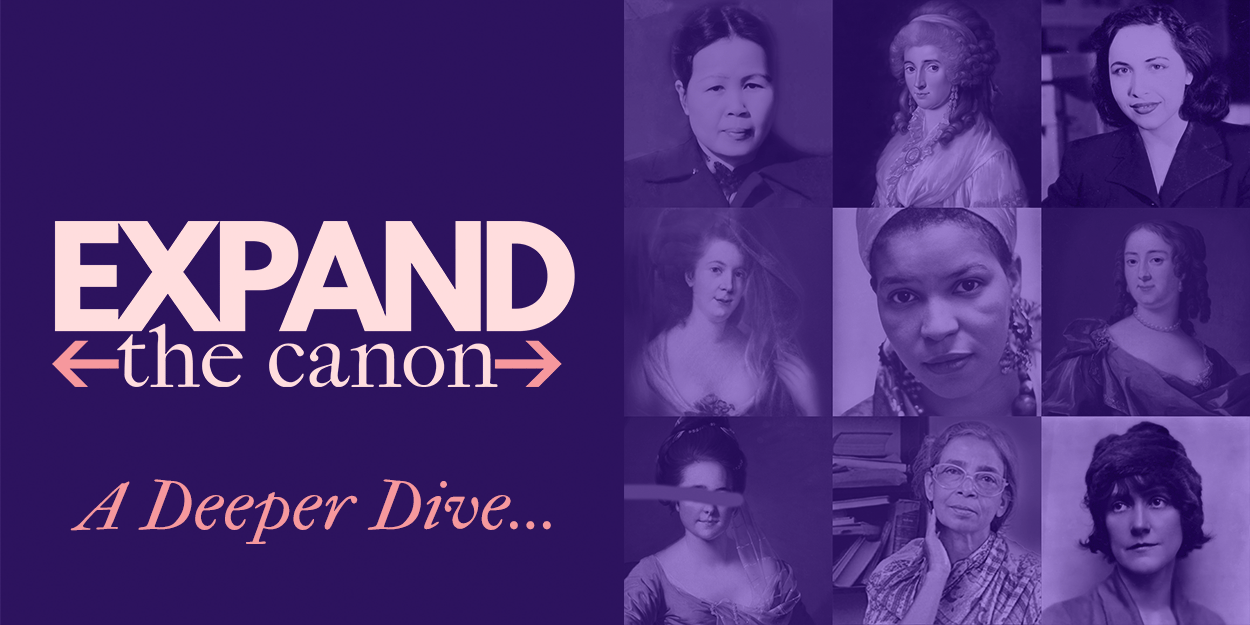
This month’s feature
The Verge (1921)
by Susan Glaspell
Thanks for joining us, Classic Stage Company, & Fiasco Theater at the Brooklyn Botanic Garden!
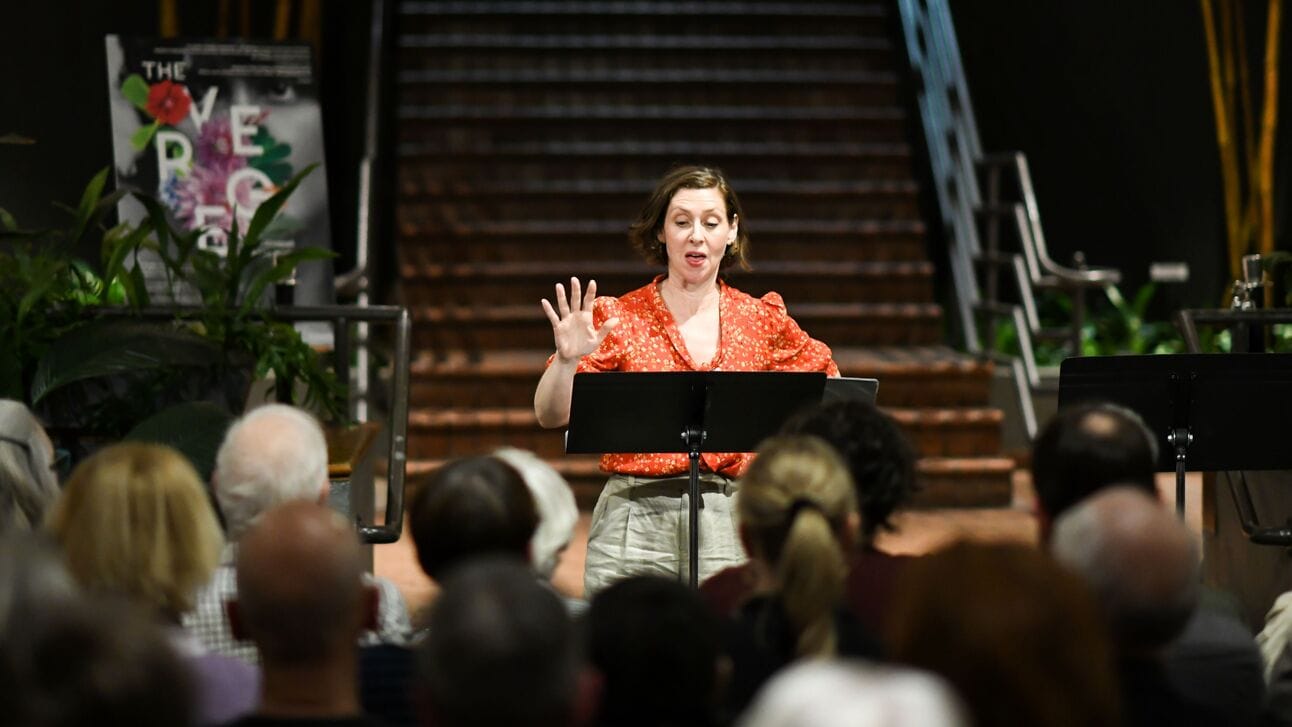
We were delighted to have Tony-winner Miriam Silverman star in the reading – and a star she was indeed! She and the Fiasco cast did a marvelous job bringing this complex text to life. And YOU packed the house, making the experience that much more fun! Photos by Allison Stock.
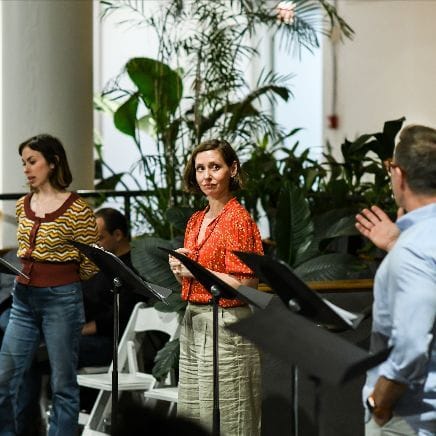
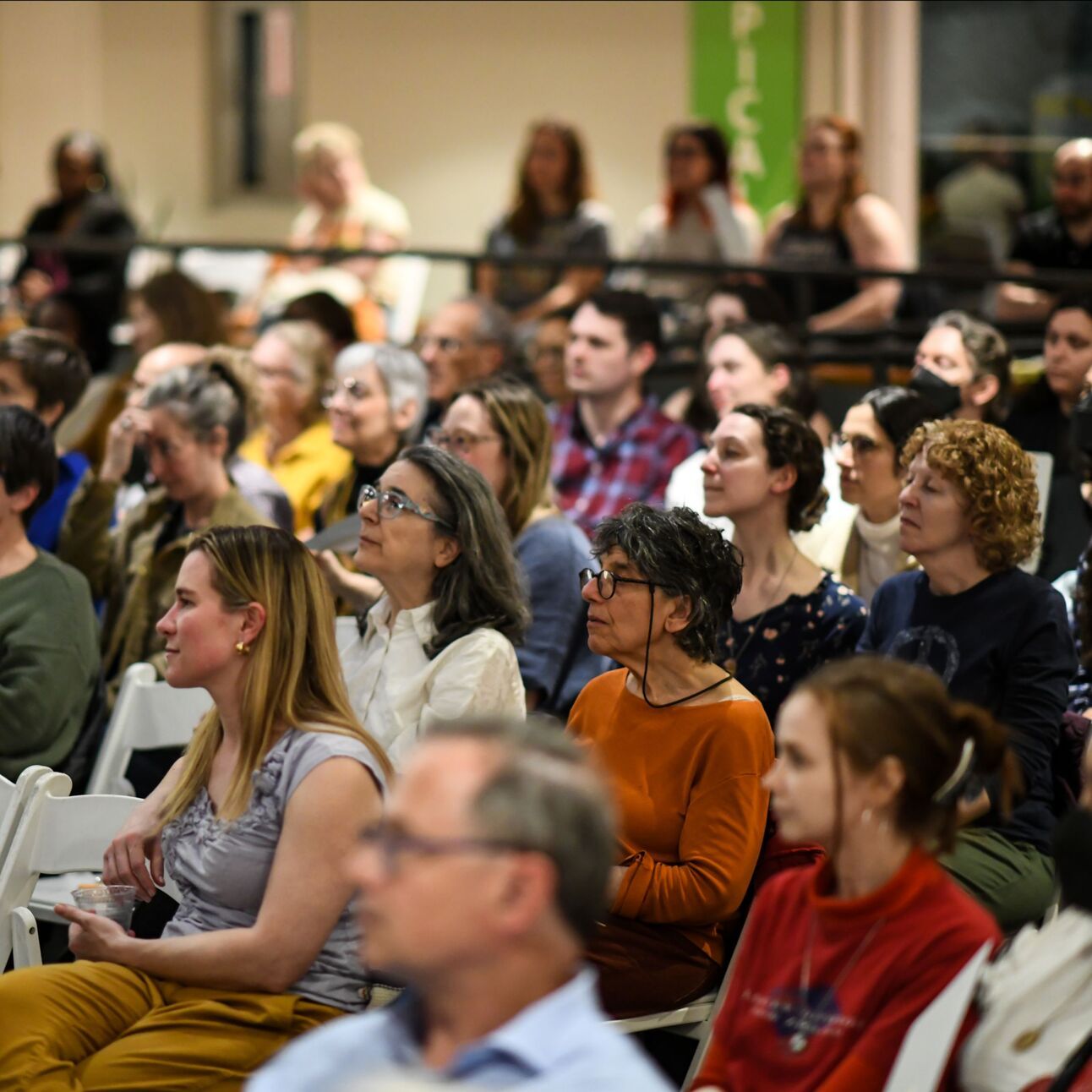
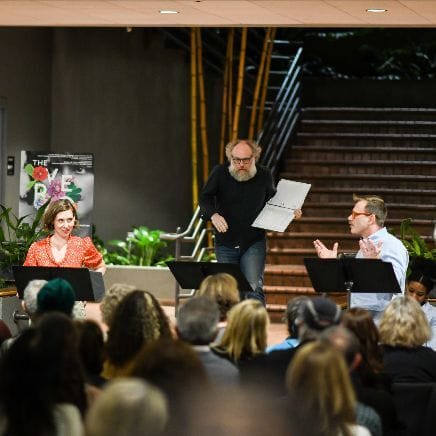
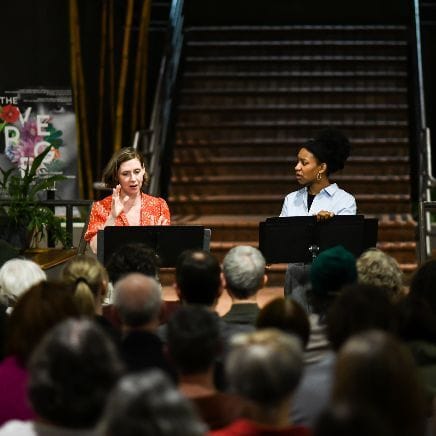
Full Summary: If you’re looking for a tragi-comedy where the lyric insight of Virginia Woolf meets the electric cruelty of Hedda Gabler… consider this post-war portrait of a woman created and creating through destruction. Claire Archer attempts to transcend the constraints of modern life through the breeding of new plants, despite a literal Tom, Dick, and Harry trying to stop her. As the blossoming of her latest creation approaches, her sanity is called into question and tensions around her unique way of life explode. A piece that is by turns devastating philosophical portraiture, droll farce, and scathing feminist cry, The Verge comes together in a pressure cooker analysis of prescribed womanhood.

Some of our favorite lines from The Verge:
“If this is delusion, I want that delusion. It’s more than any reality I could attain.”
“From the gutter I rise again, refreshed. One does, you know. Nothing is fixed — not even the gutter.”
“I’m also beginning to suspect that – oddity may be just a way of shifting responsibility…”
An in-depth bio of Susan Glaspell:
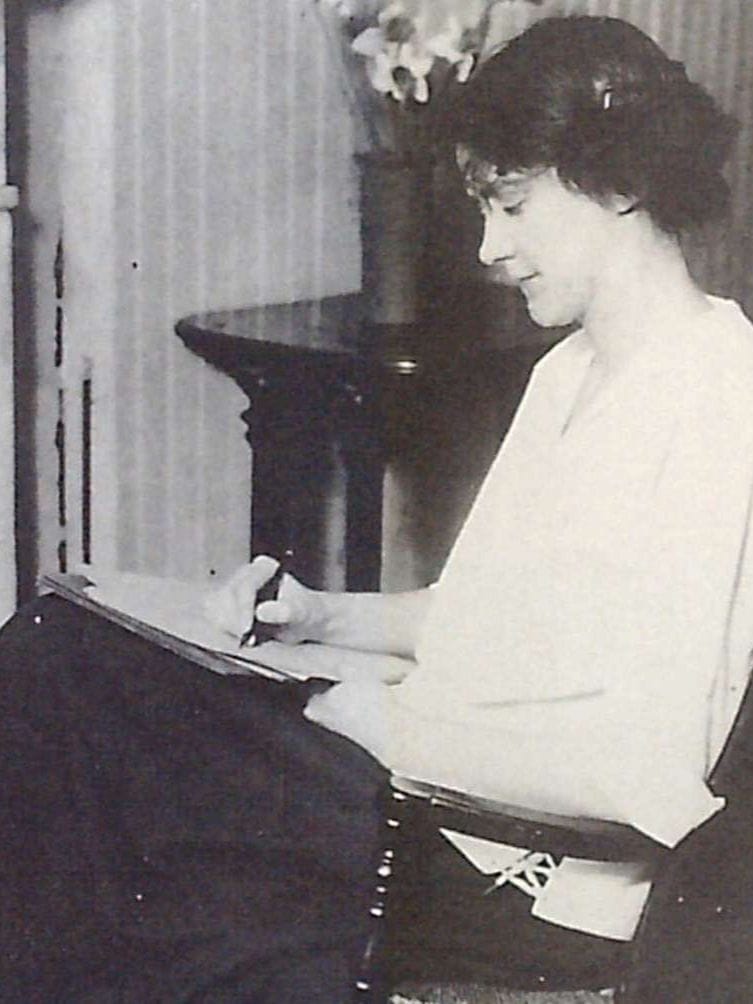
Image: Susan Glaspell writing
Thanks to dramaturg James La Bella for this bio and summary work!
Born on July 1st, 1876 in Davenport, Iowa, Susan Keating Glaspell was the middle child of Elmer Glaspell and Alice Keating. She garnered success after her high school graduation in 1894, working as a reporter for the Davenport Morning Republican and a society editor for Weekly Outlook magazine. She graduated from Drake University with a Bachelors in philosophy in 1899, and subsequently began working as a reporter and columnist for the Des Moines Daily News. Glaspell left reporting to focus solely on writing and began publishing short fiction in magazines like Harpers and The Ladies Home Journal. In 1906 she was admitted to women’s study group The Tuesday Club and soon joined the more-radical social group The Monists. She met her husband-to-be (then engaged to another woman) George Cram Cook around this time while protesting a book banning with The Monistis.
Her first novel, The Glory of the Conquered, was published to great success in 1909. She followed with a second novel, The Visioning, in 1911. She married Cook two years later in 1913, and the pair became prominent among the artist community in Greenwich Village. In 1915, the year of her third novel, Fidelity, Glaspell summered in Provincetown and began The Provincetown Players with Cook. The theater company would launch the career of Eugene O’Neill, and feature such associates as Edna St. Vincent Milay, Louisa Bryant, and Sinclair Lewis. Between a winter season in Greenwich Village and a summer season in Provincetown, Susan Glaspell would write four full length plays, Bernice (1919), Inheritors (1921), and The Verge (1921) for the Provincetown Players. Her one act works for the company would include Trifles (1916), Close the Book (1917), The Woman's Hour (1918), and Tickless Time (1919).
Ideological differences separated Glaspell and Cook from The Provincetown Players, and the couple briefly moved to Greece in 1922, where they stayed until Cook’s death in 1924. Glaspell returned briefly to Iowa, and then to Massachussetes where she wrote four novels and two plays, Comic Artist (1927), and Alison’s House (1930). For Alison’s House she was awarded The Pulitzer Prize for Drama. She briefly directed the Midwest Play Bureau for the Federal Theater Project in Chicago before returning to Provincetown in 1938. Here she would continue to write and publish, including articles against book banning, until her death in 1947.
And join us next month:
Drink women-made wine & support our mission!
In light of last year’s smashing success, we’re reviving our night of ETC monologues and revelry at woman-owned Brooklyn bar Winemak’her! Proceeds from each glass you drink goes to benefit our work on Expand the Canon – so you can feel doubly good raising a glass!

Expand the Canon is sponsored in part by the National Endowment for the Arts, the NYSCA-A.R.T./New York Creative Opportunity Fund (A Statewide Theatre Regrant Program), and the Greater New York Arts Development Fund of the New York City Department of Cultural Affairs, administered by Brooklyn Arts Council (BAC).




Copyright (C) " target="_blank">unsubscribe